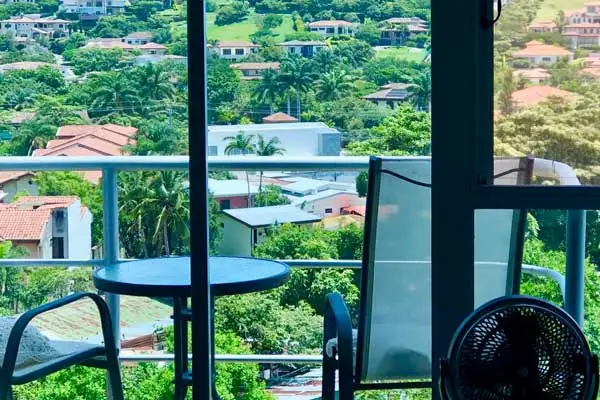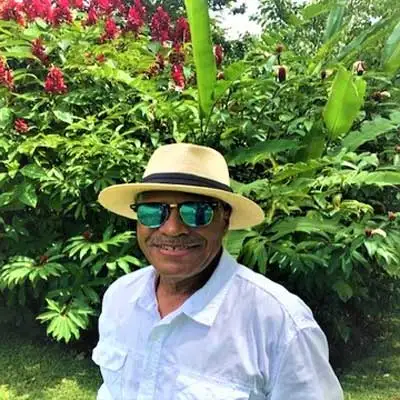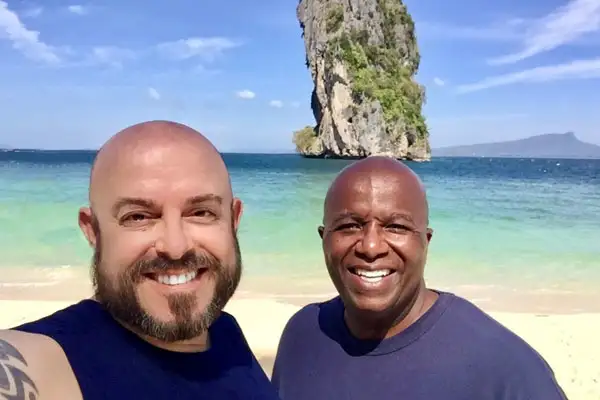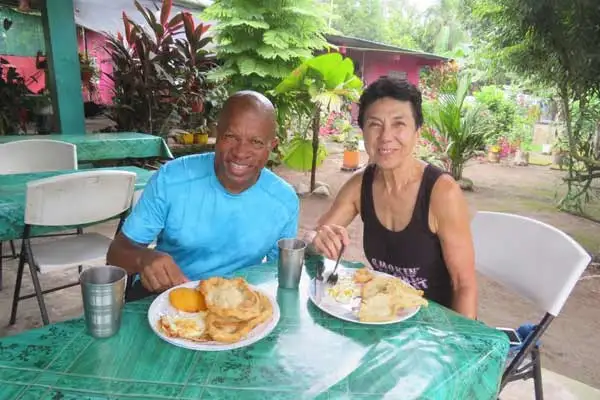5 Black American Expats Share Their Experiences Living Overseas
17 min readInternational Living readers know there are beautiful, safe, warm, and welcoming countries on earth where the cost of living is a fraction of what it is in the U.S. Places where they can live a more relaxed, fun, fulfilling lifestyle without sacrificing a high-quality lifestyle that includes excellent medical care. We’ve been showing them how and where for over four decades.
But the decision on where to live is not always readily subject to logical analysis. Everybody is unique and has different priorities, interests, must-haves, and wishes. For some, the cost of living and the availability of good-quality, affordable healthcare will be their top concerns. But for a growing number of frustrated Black Americans, the biggest issue is race, and how they are treated as a person of color at home and abroad.
If you aren’t sure about where you should go or what to expect when you get there, we’re here to help. We’ve reached out to our network of correspondents and contributors, five of whom share their experiences below.

By Michelle Wedderburn
For my husband, Darryl, and me, our motivation for moving overseas was to experience a simpler, more laidback existence while immersing ourselves in another culture. We were looking for a place to call home, not too far from the U.S., and somewhere we would get more for our money.
After doing extensive research and considering Italy, Costa Rica, and Panama—we noticed Mexico kept popping up as one of our top three countries we could retire in. I had personally visited Mexico many times in the past, but my husband wasn’t too keen on it, at first. But after reviewing all the information and statistics we could find, especially the cost of living and all of the different areas we could pick from, we decided to take a research trip in 2017.
We visited San Miguel de Allende and Mexico City—and there was a clear winner between the two. We knew straight away that San Miguel was for us and felt it would be the perfect option for us to explore and grow as a family. The atmosphere here is perfect for our son and grandkids, and reminds us of our own childhood, with the added bonus of another culture and language to learn from. Additionally, there are so many things for us to do as a family and also for children. The key to that is affordability.
There are a number of people in San Miguel del Allende who speak English so it has been an easy transition for our family. We still have access to many of the goods and stores we were familiar with buying from. But for us, it’s the positive differences that outweigh the similarities. We love the community we live in and there’s a closeness and support system that we did not have living in the U.S.Living in Mexico has made me feel more human and less categorized.The culture in Mexico is very family-orientated and Mexicans take time to socialize. They appreciate the importance of family and friends, taking great care in making bonds and building relationships. Living in Mexico has made me feel more human and less categorized. We have been made feel welcome in this country and I feel more accepted than I did growing up as a person of color in the U.S. In just a few short years, we have made great friends with people in Mexico, both locals and fellow expats. There is a real warmth and kindness in our day-to-day encounters.
That is the reason I started AfroExpats.com and my YouTube channel. I wanted to promote our positive experiences since moving abroad. I would like other Black Americans and people of color to know there are places in the world that will treat you fairly. I am grateful that I’m able to be here and enjoy our new life in San Miguel de Allende.

By Devon Austin, thatbellalife.com
I’m a military brat so travel has always been in my blood. Before we eventually made our decision to retire overseas, my husband and I traveled to many countries, and the more we traveled, the more fascinated I became in discovering a deeper understanding of the world.
After our third visit to Paris in 2011, we finally decided to move abroad. We wanted to live outside the bubble of life in the U.S. At the time, Paris was our first choice, and I even started a blog to chronicle our five-year plan to move abroad. But after doing our research, it became clear that we would not be able to afford to retire there on our Social Security.
So in 2013, we began a new search. We were now three years away from retirement and had become painfully aware that not only could we not afford our dream retirement to Paris, we could also not afford to continue our lives in San Francisco. We had been priced out of the housing market and rents were rising far out of our reach. Our beloved home was becoming a place where only the wealthiest could afford to live. At the same time, racial tensions were flaring and the political climate was becoming tense. We decided to form a group of six friends that would meet weekly to research relocation options outside of the U.S. In our research, we found many expats had successfully moved out of the U.S. and were thriving in their new homes. At first, we focused on five countries—Argentina, Ecuador, Panama, Belize, and Portugal. But the eventual winner was Costa Rica.
We chose Costa Rica for five reasons:
-
The cost of living matched our budget. We were looking for somewhere where a couple could live comfortably on $2,000 a month.
-
Costa Rica has no standing military, and this was a big draw for us. Costa Rica abolished its military in 1948 and chose instead to use the money to focus on the education and healthcare of its people.
-
It has affordable healthcare—through the national healthcare system or if you choose to self-insure.
-
It is a beautiful country with friendly people and a slower pace of life.
-
Fresh fruits and vegetables, eco-friendly farms, expat communities, and sunsets to die for!
In April 2016, three months out from our retirement, we got a lead from an expat we had met in an online community. It was in reference to a cute three-bedroom, two-bathroom house located on a coffee farm on one of the beautiful ridges of Grecia. We enlisted the help of a fellow expat friend to visit the house and take a video for us. It turned out to be the perfect fit and we decided to take it (it was our home for almost four years). The following month we sold most of our household belongings and our cars, packed eight suitcases, and on June 1, we boarded a flight bound for Costa Rica and new life abroad. And we have never looked back!
As part of our due diligence, we contacted other African American expats in Costa Rica to find out what their experiences had been like living in the country. It has been exactly as they reported. The Costa Rican people are friendly and welcoming. I won’t say there is no discrimination in the entire country because that would not be true. But as African Americans, we are looked at as “gringos” along with other races and foreign nationalities. We finally feel respected and have found peace of mind in our new home.
My advice to anyone considering a move is to do your research. Study the history of the country. To know a country’s history is to understand its people. I think one of the reasons we are often tagged as “arrogant Americans” is because we automatically assume that every country is the same as the one we’ve come from and so we set our expectations on that assumption.

By Riley Jackson, costaricachillin.com
After my wife, Cely, passed away in 2018, I was faced with some major changes in my life. It was at this time that I began to consider different places and countries where I could relocate. I had heard some wonderful things about Costa Rica for many years and was always curious to learn more. In February of 2019, I started researching all things Costa Rica and came across the International Living website and its section devoted to the country. After reading through the information, it was pretty much a done deal. That was what I needed to help me make a very important decision in my life.
I was looking for a place to retire and had a specific list of requirements, which included beautiful beaches, a tropical climate, a great healthcare system, and a lower cost of living compared to the U.S. and not very far from California, where I am from. I was burned out and stressed from living in the Golden State. Things weren’t so “Golden” for me anymore, with the rising cost of living, property taxes, through-the-roof real estate prices, uncontrolled healthcare costs, neighborhood drug activity, homelessness—not to mention the political climate.
My late wife was from the Philippines so I had considered Batangas as a good place to live, as well as Mexico and Costa Rica. All good choices in my opinion but it was a retirement tour in Costa Rica that helped make my mind up. The tour took us to the Southern Pacific side of Costa Rica first, including Uvita, Dominical, Quepos, Manuel Antonio, Jaco, and all of the gorgeous beaches and small towns in between. We also visited Escazú (the Beverly Hills of Costa Rica), Santa Ana, Heredia, Atenas, and Grecia. I had heard some great things about Grecia in particular, which is located in the Central Valley about an hour from San Jose and thirty-five minutes from the airport. Known as the cleanest city in Costa Rica, Grecia has a small-town atmosphere with its population of about 17,000 people. I arrived there on a beautiful clear Sunday morning, and it truly felt like I had found home.You can’t buy happiness, but you can always come to Costa Rica.Grecia has a large expat community, so you run into expats everywhere in town. Although there are currently not many Black expats here in Grecia, we are a very tight-knit group, and most of us know each other. I had no problem adjusting to my new country, and I’ve never felt any discrimination for being Black in Costa Rica. Even my Black friends here share the same sentiment. They’re treated better here and with more respect than in the U.S. I find that the people here are happy and very welcoming people who will go out of their way to help you if you’re lost or having a problem with the language.
Living here in Costa Rica is vastly different from living in the U.S., at least for me. Of course, there are some things in the U.S. that you cannot get here, but life here in Costa Rica makes up for that. What I’ve noticed most since living here in Costa Rica is the fact that people here greet you with a smile and buenos días every morning—even the bus drivers. One of my pet peeves about living in California was that I rarely received any kind of greeting, especially from young folks. It seems that a lot of people in the U.S. are uptight, stressed, and angry with the world. You can’t buy happiness, but you can always come to Costa Rica.

By Damon Morris
Our decision to move overseas began with a two-week trip to Bali, Indonesia, in 2015. Our vacation was amazing, filled with great food, massages, temple viewing, and yoga classes. We experienced relaxation as we never had before. After coming home and waking up to the reality of our working lives, that Zen feeling quickly dissolved into dust. Our routine work schedules, dealing with traffic, emails, and business meetings quickly consumed our time once again. It was like Bali never happened.
As the weeks passed by, we often thought about how awesome it would be to capture those moments of Zen for more than seconds at a time. Months passed by and we found ourselves wishing for an early retirement and traveling the world. It was the following year we decided to make the dream become reality. We started researching other countries and came across a conference that was hosted by International Living in Las Vegas. We attended the conference with an open mind and our world was rocked with all the information and stories we heard on what it was like to live abroad.
By 2016 we had sold our house and sold all of our material belongings and decided to retire early. My partner, Todd, was 52 and I was 53. We have now been traveling this big world of ours for the past three-and-a-half years and have been to 23 countries. We have truly learned that there are many countries you can live comfortably and have a wonderful quality lifestyle. You can call us Roving Retirees. This means we are still traveling the world currently and still looking for our final place to call home. We spend anywhere between 60 to 90 days and more in countries. Traveling this way allows us to feel what it would really be like to live in that particular country.
In our travels to other countries there are some similarities to the U.S., and some major differences as well. I’ve come to believe that most people in the world want the same things in life: education, a job they love, providing for their families, a safe place to live.
I’ve noticed differences, of course, too—especially in South America and Central America (Costa Rica). There, family is everything. It was amazing watching families spending quality time with loved ones on Sunday afternoons in the park after church. I began to notice how the younger generation really took care of their elderly parents. People would regularly come to gather for dinner throughout the week and spend hours socializing in their homes enjoying one another’s company. It was also quite common to watch both parents walk their children to school every morning.
And while the people are very hard workers in the physicality of their work, their approach to their work-life balance is totally different than ours back home. In the U.S. everybody is constantly working and planning for the future. However, in other countries, people work for the NOW. In other words: The U.S. lives to work and other countries work to live. This different attitude allows for a much slower pace of life in Latin America, which I came to appreciate and love.
I have a news flash for my Black American friends traveling to Asia. You WILL get stared at, and it might even come with some giggling. However, it’s not the stare you may be familiar within the U.S. You know the stare I mean…the one you get when you feel like you don’t belong. Instead, you’ll get more of a genuine look of intrigue and excitement that you’re visiting their country. It’s very common for someone to ask if they could take your picture or if they could take a selfie with you.
As a Black, gay, expat man involved in an interracial relationship, I’ve honed my ability to adjust and navigate discrimination. I have to admit that coming from California, I was strongly concerned about how I was going to be embraced and received in other countries. Coming from the racist climate of the U.S., in the first two countries we explored, I had my partner Todd make the Airbnb reservations. I thought at the time this was the best way to handle the situation. But after a while, I began to realize that I didn’t have to look over my shoulder with concern anymore, or while walking past an armed police officer. They were acknowledging me with a smile—and this was a unique, but pleasant change for me.
Eventually, I made a conscious decision to start making most of the Airbnb reservations with my own profile to see if I would experience some form of discrimination. I’m pleased to share that I have not been denied services from restaurants, or any other establishment like car rentals, hotels, tour companies, even in certain regions of the world where some might not have considered it safe.Traveling has changed my life—and my perspective on the world—forever.Within my family and circle of friends, the one question that arises most often is: Have I experienced discrimination in other countries? My normal response to them is “no,” however, I also tell people that I’m considered just an American, and not a Black American.
I want to be clear I’m not looking at life overseas through rose-colored glasses. I’m sure there are people who have been discriminated against. However, I have had conversations with other Black Americans abroad, and my positive experiences seem to reflect the general consensus among those expats I’ve spoken with as well.
The takeaway I would want Black Americans—and any other people that have not had the opportunity to travel—is: Get out there and try it. Traveling has changed my life—and my perspective on the world—forever. It has shown me that people all over are more alike than we realize. In my view, it’s never too late to travel, and it’s always rewarding to seek out those many similarities among people.

By Fred Fleet
Being a resident of Panama for over 15 years, I have answered a lot of questions about what it is like to live in a foreign country. But very few people have asked me how I am treated as a person of color or as an African-American.
Panama is a hotchpotch of cultures fused into one. Over 50% of Panamanians are of African descent. Once embedded into their culture, my wife, Karen, and I have experienced the friendliest people in the world. Even when you are wrestling with speaking Spanish, Panamanians will apologize for not speaking fluent English and go out of their way to assist you in any way they can be of service.
In 2005, my wife and I retired to Panama. We purchased property on the beach and designed and built our own home. In the process of this labor, I became very interested in the culture. I understood I was the only African-American on the beach in this retirement community. But how would the Panamanians interact with a Black American from another culture? What would some of the underlining problems be when they met me face to face?
Early into our construction phase, my wife and I were renting a car to get around in the city. Finally, we decided to purchase a Pathfinder that we found for sale near the city of David. While I drove home in the new car, my wife decided to drive our rental car back to the rental office. I stopped at the gas station to fill up the Pathfinder. I stepped out of the vehicle to pay for the gas and suddenly I heard the car doors lock. It was then I realized that this vehicle had an automatic door lock system. The keys and my phone were locked inside. My wife had the second set of keys. How was I going to contact my wife?
This was a time when my knowledge of Spanish was nonexistent. What was I supposed to do? I went into a grocery store located next to the gas station. I panicked. The store clerk who didn’t understand what I was saying contacted the store manager. The manager who understood a little bit of English assisted me in contacting my wife and allowed me to speak to her on his phone. My wife returned with the second set of keys.
This is what people are like in Panama. They assist, they help, and there are no prejudgments. Because of the rainbow of colors that comprises the Panamanian culture, most Panamanians think I am Panamanian. They might assume I understand more Spanish than I do.
Our first trip to Panama we stayed over in Panama City at a modest hotel. Sitting in the breakfast area the next morning we tried ordering breakfast. We struggled with the order. The waitress stared at me while my wife was doing most of the communication in her broken Spanish. She finally pointed to several meals that we were interested and the waitress took our order.
When our order arrived, we were thankful it was exactly what we ordered. A few minutes later an American couple arrived and sat next to the window. When they ordered they spoke English and the same waitress spoke to them in perfect English. We were taken back a little. Was this a sign of racism?
Over the years of living in Panama, I understand that I look Panamanian and the expectation is for me to speak Spanish. Because of my dark skin, I could reside from anywhere in Panama. However, I also learned to start speaking Spanish and discovered afterward there is no confusion about me being Panamanian. It completely dissolves once they hear my accent. Racism was not involved.
During a routine stop by the local police, before he asked for my license, I said Buenos dias (Good Morning). The officer smiled at me and then said, “Good Morning” in English. He knew I was not Panamanian and all it took was for me to try to communicate in Spanish.
Racism due to skin color is rare in Panama. In the U.S. in the early 1980s while shopping in Los Angeles gift stores the owner followed me around the stores to ensure that I wasn’t stealing anything. When I emerged with books of classical music and purchased the items the owner still followed me out of the store. This incident has never happened to me in Panama.
During my time in Panama, I’ve learned more about the culture and the people. My wife and I started taking Spanish classes. Most of the Panamanians are exposed to English in their high schools and in college. Professional Panamanians usually are fluent in English. Our builder, accountant, attorney, and even our travel agents all speak English.
Panama has a rich African culture and they embrace it. Over 50% of Panamanians are of African descent. When I told my friend Gilberto about my article on racism, he informed me as a Panamanian of African descent he does not experience any racism. Gilberto is a professional accountant in the city of David, the third-largest city in Panama. He attends an African festival every year that lasts the entire month of May. It’s a festival where Panamanians of African heritage can celebrate their history. Gilberto dresses up in traditional African-Panamanian attire.
What makes Panama comfortable with its variety of cultures? Panama offers a rainbow of colors. The culture is proud of its many subcultures existing as far back as recorded history. The Panama Canal has populated the culture with residents who were former slaves, residents who came from India, Spain, and Asian cultures just to mention a few. We made the mistake early on here of looking at someone we thought was from the U.S. only to discover they were Panamanian. You simply cannot go by what people look like. The gift of Panama is that they embrace everyone.
Related Articles
The World’s Best Places to Retire


